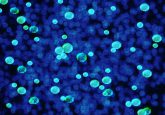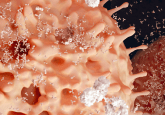Researchers identify a novel way to target chemo-resistance leukaemia cells – an interview with Peter Stern
In a study published recently in Haematologica a group of researchers from The University of Manchester (UK) have discovered that the 5T4 protein found on the surface of cells contributes to chemotherapy resistance in acute lymphoblastic leukemia (ALL). Utilizing a novel approach, early testing suggests that targeting the protein with an antibody drug conjugate could hold promise in improving treatment.
In an exclusive interview with Oncology Central, Peter Stern from The University of Manchester provides us with more details of the study and the potential clinical impacts of its findings. You can read the full news story here.
Summary
What are the current treatment options for ALL?
In this study you and your team demonstrated a link between 5T4 protein and chemo-resistance in ALL. Can you describe how you identified this association?
Going on from this, the team identified that by utilizing the drug A1mcMMAF in mice engrafted with 5T4 positive ALL cell line; it was possible to selectively attack treatment resistant leukemia cells. Could you give us further details of the mechanism by which the drug attacks these cells?
Could you also give us further details on A1mcMMAF‘s safety and efficacy?
Could you tell us about the potential clinical impact of these findings?
What are your next steps for this study?
Profile:
 Peter L Stern is in the Division of Molecular & Clinical Cancer Sciences, Paterson Building, University of Manchester, UK. He trained at University College (London, UK) obtaining his BSc and PhD. He has previously held research positions as staff scientist at the MRC Molecular Biology Laboratory (Cambridge, UK); European Molecular Biology Organization Fellow at the University of Uppsala (Sweden); Cancer Research Campaign Fellow and Junior Research Fellow at Linacre College, University of Oxford (UK); Lecturer at the Medical School, University of Liverpool (UK); Visiting Professor at the Free University of Amsterdam, The Netherlands and Cancer Research UK Group Leader at the Paterson Institute for Cancer Research (Manchester, UK). One theme of research has been the investigation of shared properties of developmental tissues and cancer cells with a view to identifying new targets for diagnosis, prognosis or therapy. His research has developed vaccine and antibody targeted therapies to 5T4 oncofoetal glycoprotein from the laboratory through to clinical trials. In the field of HPV, activities have been directly related to the development of prophylactic and therapeutic treatments for patients with HPV-associated anogenital disease. This has included the design and delivery of clinical and laboratory analyses of numerous clinical trials of vaccines and other immunotherapies.
Peter L Stern is in the Division of Molecular & Clinical Cancer Sciences, Paterson Building, University of Manchester, UK. He trained at University College (London, UK) obtaining his BSc and PhD. He has previously held research positions as staff scientist at the MRC Molecular Biology Laboratory (Cambridge, UK); European Molecular Biology Organization Fellow at the University of Uppsala (Sweden); Cancer Research Campaign Fellow and Junior Research Fellow at Linacre College, University of Oxford (UK); Lecturer at the Medical School, University of Liverpool (UK); Visiting Professor at the Free University of Amsterdam, The Netherlands and Cancer Research UK Group Leader at the Paterson Institute for Cancer Research (Manchester, UK). One theme of research has been the investigation of shared properties of developmental tissues and cancer cells with a view to identifying new targets for diagnosis, prognosis or therapy. His research has developed vaccine and antibody targeted therapies to 5T4 oncofoetal glycoprotein from the laboratory through to clinical trials. In the field of HPV, activities have been directly related to the development of prophylactic and therapeutic treatments for patients with HPV-associated anogenital disease. This has included the design and delivery of clinical and laboratory analyses of numerous clinical trials of vaccines and other immunotherapies.





